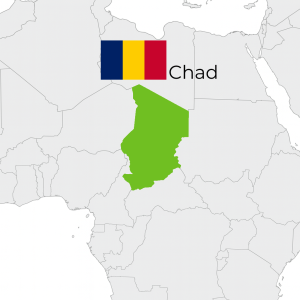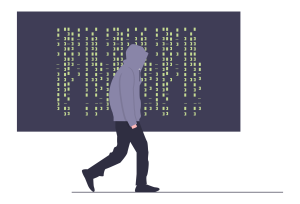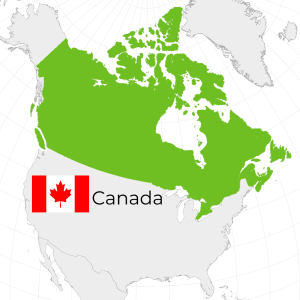9.2 Threats to Elections
To conduct an election, voters and election administrators need a safe and stable environment in which the election can happen. This can quickly be undone by threats, violence, and other forms of civil unrest. Elections can also be compromised by digital technologies, cyber attacks, and threats from foreign actors.
Physical Threats
Electoral threats, conflict, and violence can be present in regimes without robust democratic institutions. One study attempted to document and categorize instances of election violence in over 600 elections around the world by considering the perpetrator, the victim, and the action (Birch & Muchlinski, 2017). The table below provides examples of the electoral violence that can be committed by the government, against the government, or by other non-state actors or foreign entities:
| Threats | Attacks |
|---|---|
|
|
Election violence has increased around the world, even in advanced democracies like the United States (Hanna, 2024). However, the potential for violence and corruption is more pronounced in emerging democracies that lack established democratic norms and institutions (International IDEA, 2025).
Close up: Political Violence in Chad

- V-Dem Regime Type: Electoral Autocracy
- Transparency International Corruption Rank: 158\190
- Economist Democracy Score and Category: 1.98/10 – Authoritarian
- Freedom in the World Score: 15/100 Not Free
While Chad has been slowly trying to move beyond autocratic rule, elections are still plagued by state-initiated violence and intimidation. In May 2024, opposition presidential candidate Yaya Dillo was killed by Chadian security forces. Dillo was the leader of the Parti socialiste sans frontières (Human Rights Watch, 2024). A year later, in May 2025, former Prime Minister and leader of the Les Transformateurs party, Succès Masra, was arrested for allegedly inciting hatred (Human Rights Watch, 2024).
Virtual Threats
 In addition to the physical threats to elections, threats posed by technology are also on the rise. Foreign interference, media manipulation, and disinformation can all undermine election administration. Digital threats have become more apparent in recent years. In one example, a Slovakian election was disrupted when an audio clip was released featuring a party leader discussing potential election fraud with a journalist (Meaker, 2023). The clip turned out to be a fake generated by artificial intelligence (AI), prompting some researchers to consider whether this was the first election outcome that may have been influenced by AI deepfakes (de Nadal & Jančárik, 2024).
In addition to the physical threats to elections, threats posed by technology are also on the rise. Foreign interference, media manipulation, and disinformation can all undermine election administration. Digital threats have become more apparent in recent years. In one example, a Slovakian election was disrupted when an audio clip was released featuring a party leader discussing potential election fraud with a journalist (Meaker, 2023). The clip turned out to be a fake generated by artificial intelligence (AI), prompting some researchers to consider whether this was the first election outcome that may have been influenced by AI deepfakes (de Nadal & Jančárik, 2024).
Foreign Interference
The threats posed by AI and digital technologies are especially problematic because of their global nature. Social media messages don’t stop and report at the border. Consequently, election interference from foreign actors has been on the rise around the world.
Defining Foreign Interference
Canada’s Public Inquiry into Foreign Interference in Federal Electoral Processes and Democratic Institutions defines foreign interference as: “a clandestine, deceptive or threatening activity by a foreign state, or those acting on a state’s behalf, that is detrimental to the interests of Canada.” (Vol 2, pg 47)
In 2024, Romania postponed a Presidential election due to interference from a Russian disinformation campaign (Ross & Popoviciu, 2025). Russian actors have also used platforms such as Telegram and TikTok to influence elections in Moldova, Russia, and Germany (Popescu-Zamfir, 2025). According to one estimate, Russia (and previously the Soviet Union) has interfered in at least 10% of all global elections between 1945-2000 (Levin, 2020). Foreign interference in elections isn’t new, but technology has changed the nature of the threat.
Digital Borders
Intervening in election campaigns through social media channels often contravenes domestic laws that govern political advertising and foreign financing of election campaigns (Jones, 2023). In hopes of mitigating these threats, the European Commission has proposed a European Democracy Shield intended to protect elections in EU member states from Foreign Information Manipulation and Interference (FIMI) (Bentzen, 2025).
Close-up: Foreign Interference in Canada

- V-Dem Regime Type: Electoral Democracy
- Transparency International Corruption Rank: 15/190
- Economist Democracy Score & Category: 8.69/10 – Full Democracy
- Freedom in the World Score: 97/100
In the 2019 Canadian Federal Election, people affiliated with the Chinese Communist Party (CCP) organized buses to transport international students to a nomination meeting in the Electoral District of Don Valley North with the goal of influencing the outcome. This event, and similar allegations involving other ridings and other countries, including India, prompted a public inquiry to investigate the problem and recommend corrective action. The commission made over 50 recommendations, including suggested changes to relevant legislation and improving information sharing between intelligence agencies (Hogue, 2025, Vol 1).

